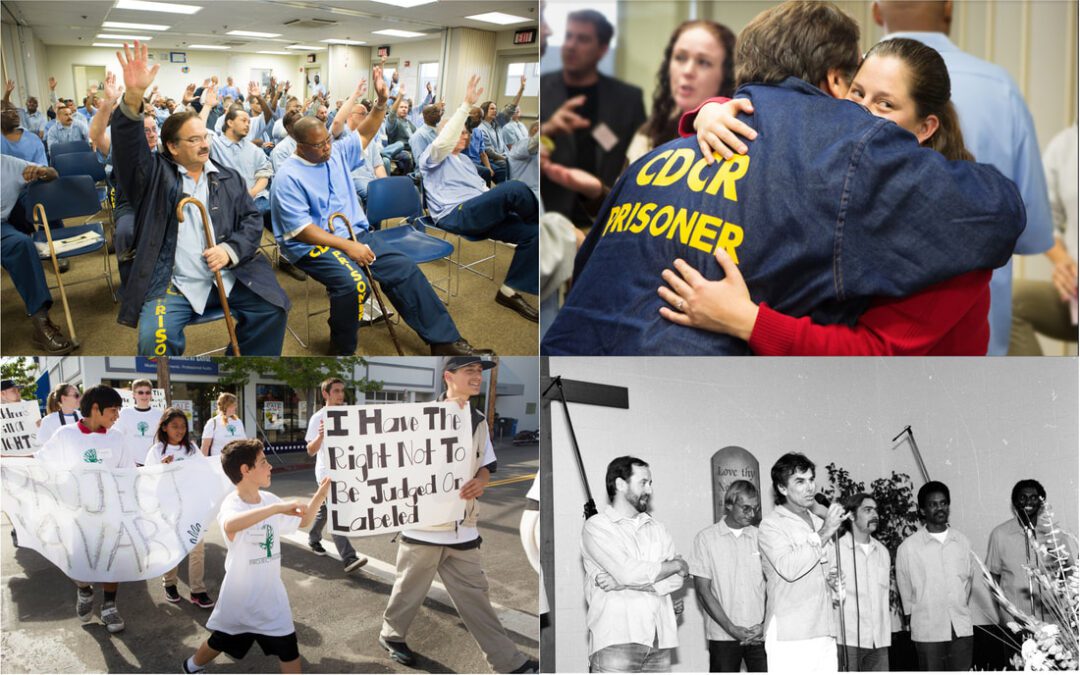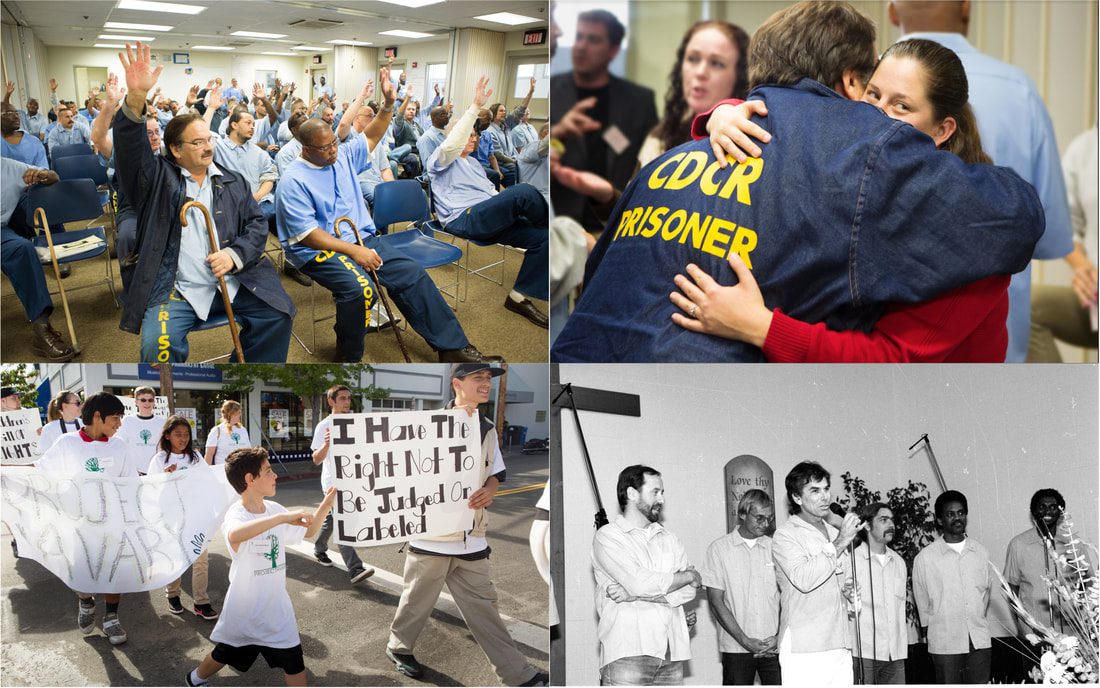There has been no shortage of feature films and documentaries that have sought to explore San Quentin over the years. The latest, Invisible Bars delves into the impact that mass incarceration has on families and American society. Directed by John Beck (Worst in Show, The Monks of Vina), the film premieres on KQED on March 19 at 11pm and again on March 20 at 5am and March 21 at 10am.
Filmed entirely in the Bay Area over the past four years, the film takes viewers into Solano and San Quentin state prisons, meeting inmates trying desperately to rebuild relationships with their families. It also visits San Francisco courtrooms, state prisons, Mendocino summer camps, Tenderloin halfway houses, Oakland recording studios and churches to tell the story of children growing up with shame, parents riddled with guilt, all struggling to maintain any semblance of a relationship after a violent crime tore them apart.
Invisible Bars also shines a light on the San Rafael-based nonprofit Project Avary, which was founded by the Grateful Dead’s Rex Foundation to help nurture children growing up with incarcerated parents. Beck chronicles some of those children, including Jessica, who grew up as a Project Avary camper and now works as a counselor for the nonprofit, making weekly visits to see her father, Fred Stillman, who’s served 23 years for second-degree murder after a bar fight in Lake County left one dead and one severely injured.
In a flashback, the film revives Grateful Dead drummer Mickey Hart’s historic recording of a gospel concert in San Quentin state prison, featuring guards and inmates singing along together. It was the inspiration for the founding of Project Avary.
The 411: Bay Area filmmaker John Beck’s Invisible Bars delves into the impact that mass incarceration has on families and American society. It premieres on KQED on March 19 at 11pm and again on March 20 at 5am and March 21 at 10am.
Here’s the trailer:


